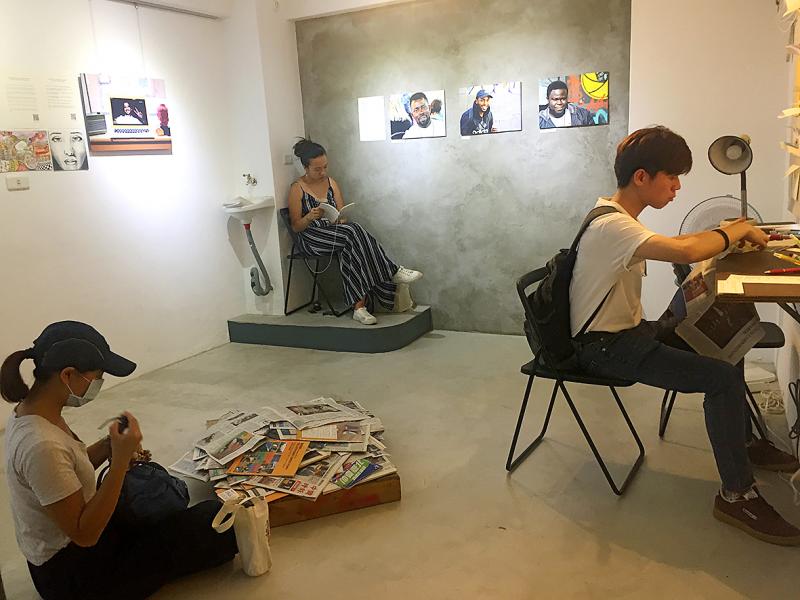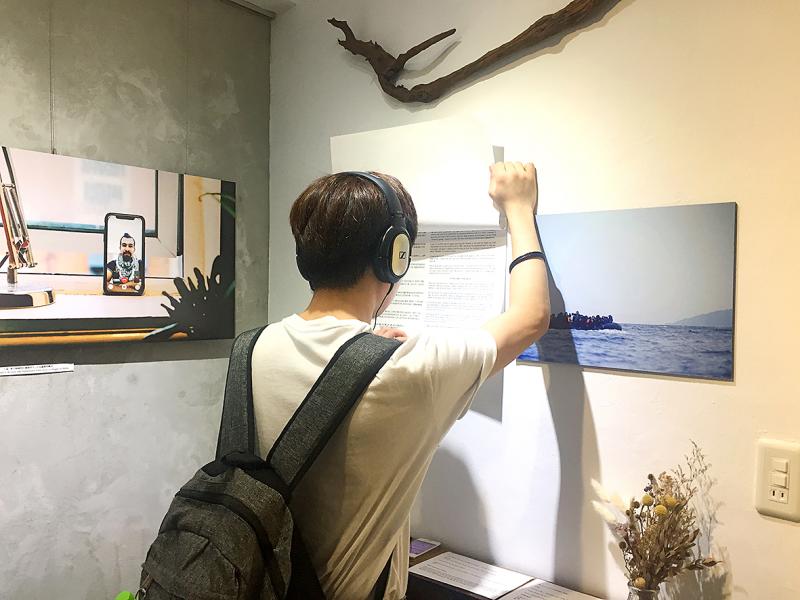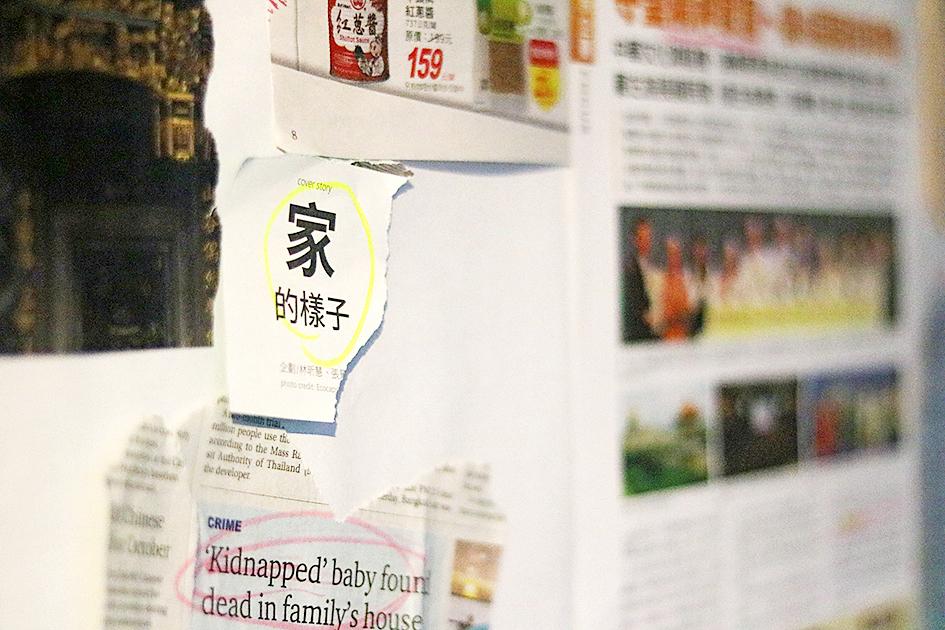In his 1958 book, A Nation of Immigrants, then US senator from Massachusetts John F Kennedy wrote the following words: “Little is more extraordinary than the decision to migrate, little more extraordinary than the accumulation of emotions and thoughts which finally lead a family to say farewell to a community where it has lived for centuries, to abandon old ties and familiar landmarks, and to sail across dark seas to a strange land.”
As an epithet, the book’s title is commonly associated with America and, in the face of the xenophobic rhetoric that has marked US President Donald Trump’s tenure, the phrase currently seems more relevant than ever. Trump is hardly an anomaly in this regard: Brexit was largely premised on anti-immigrant bombast, as has been — if not their outright ascent to power — the considerable ground populist politicians have gained elsewhere in Europe.
With the UN updating its COVID-19-exacerbated figures for globally displaced persons to a record 75.9 million last month, the plight of refugees is more critical than ever.

Photo courtesy of Alicia Chen
Such considerations are rarely on the political agenda in Taiwan where, despite the massive influx of refugees from China during the civil war period, the relatively homogenous makeup of the population means people rarely think of the country in Kennedy’s terms.
‘REFUGEE ISSUES’
“Most Taiwanese do not identify with refugee issues,” says Alicia Yingyu Chen (陳映妤) a freelance journalist and cofounder of Voices Without Borders (VWB), a nongovernmental organization that Chen established with two classmates at Sussex University’s Institute of Development Studies in the UK. Working to raise awareness about the lives of refugees, VWB has placed particular focus on their struggles during the COVID-19 pandemic.

Photo courtesy of Alicia Chen
“It might be hard for many to imagine themselves as a refugee; in fact anyone could become one, regardless of race, class or nationality,” Chen says.
It is with this in mind that Chen put together an exhibition on refugee experiences with co-curators Liao Yun-jie (廖芸婕) and Hsiao Chi-chu (朱筱琪) to coincide with World Refugee Day on June 20.
Hosted at Minim Photographic Studio (攝影工作室) in Taipei’s Dadaocheng (大稻埕) until June 26, the multimedia show documented migrant lives through a style of reportage known as “humanitarian storytelling.”

Photo courtesy of Alicia Chen
Using interactive displays, the exhibition drew on work by Migrants of the Mediterranean, an Italy-based NGO for which Chen is the Asia correspondent.
On the first floor, Chen’s own What’sApp correspondence with an Afghan friend deported from Greece was displayed on a cell phone, while on the snug gallery’s second level, an overview of interviews with Taipei’s Turkish community was presented.
Some of the members of this mini diaspora belong to the Gulen movement, which Turkey’s authoritarian President Recep Tayyip Erdogan has declared a terrorist organization.

Photo courtesy of Hsiao Chi-Chu
Since the abortive 2016 coup attempt against Erdogan’s Justice and Development Part Government (AKP) in which the Gulenists were implicated, the situation for the 20-odd members of the movement in Taiwan has become increasingly precarious.
Prevented from renewing their passports or relinquishing their citizenship — a prerequisite to obtaining Taiwanese citizenship — they are in a state of limbo.
Osman Cubuk, a professor in the Department of Foreign Languages and Literatures at National Taiwan University, is a case in point.
“Because I am a ‘terrorist,’ the Turkish government won’t handle any of my documents or applications,” says Cubuk, who spoke at the opening of the VWB exhibition. “So, I’m in danger of becoming stateless.”
REFUGEE AND ASYLUM LAWS
Efforts to reform Taiwan’s refugee and asylum laws have stalled in the Legislative Yuan since the first draft bill was presented under the Democratic Progessive Party (DPP) administration of then-president president Chen Shui-bian (陳水扁) in 2005. A further two draft bills were submitted under Chen’s Chinese Nationalist Party (KMT) successor Ma Ying-jeou (馬英九) but met the same fate, failing to pass a first reading.
Hope was rekindled in 2016, when the latest formulation became the first draft to pass initial review by the Legislative Yuan’s Internal Administration Committee. However, a roundtable with civic groups in 2017 failed to move things forward.
“There appears to be little, if any, progress on the enactment,” says Lin Shu-han (林姝函), a refugee project specialist with Taiwan Association for Human Rights (TAHR), which is at the forefront of the push for reform. “Social groups published a civil version on World Refugee Day this year, and will seek support in [the legislature] next term.”
As things stand, there are special provisions for several groups of people: stateless Tibetans, Thais, Burmese (the latter two groups comprising descendants of KMT irregulars who settled in the border regions of those countries post-WWII), dissidents from China and, finally, Hong Kong and Macau residents facing political persecution.
Applications for asylum or residency by individuals from these groups are decided on a case-by-case basis according to separate articles of law.
In May, a court overturned an attempt by the National Immigration Agency (NIA) to repatriate four Tibetans.
However, a resolution to the lack of clarity in the current article relating to Hong Kong democracy activists has not materialized. Fears that Chinese “spies” who have obtained Hong Kong residency could take advantage of the situation have been cited in local media.
“Despite unprecedented pressure recently due to the pro-democracy movements in Hong Kong, the government holds that Article 18 of the Laws and Regulations Regarding Hong Kong and Macao Affairs suffices to fix the loophole,” Lin says. “It therefore doesn’t show commitment to developing a comprehensive asylum mechanism.”
Chiu Ee-ling (邱伊翎), the Taiwan section director for Amnesty International, reinforces this point.
“Article 18 of the Hong Kong regulation is very short and without clear procedure,” she says. “It’s not enough information and due process for the [NIA] officers’ enforcement.”
What is striking about the various articles and regulations that do exist in concrete form is that they refer specifically to individuals of Chinese descent or, in the cases of Tibetans, people who were historically considered Republic of China citizens. However, Chiu emphasizes the principle of universality behind Amnesty’s efforts.
“AI ‘s position is that any asylum seekers’ rights should be protected, no matter where they came from,” Chiu says.
HUMAN RIGHTS AGREEMENTS
Technically, the legislation is already in place for all cases to be considered on an ad hoc basis. While Taiwan has yet to sign the 1951 Refugee Convention, it has ratified three key human rights agreements that directly affect the treatment of refugees: the International Covenant on Civil and Political Rights (ICCPR), the International Covenant on Economic, Social and Cultural Rights (ICESCR) and the Convention on the Elimination of All Forms of Discrimination Against Women (CEDAW).
Although the UN predictably rejected Taiwan’s official documentation for these treaties, they are now enshrined in domestic law, superseding any contending legislation, which has been amended to reflect the primacy of the international instruments. This means that Taiwan is legally bound by the principles of non-refoulement that state a person cannot be extradited, deported or expelled from a country in cases where there is reason to be believe that that person’s life or freedom is under threat. The issue, thus, appears to be one of consistent enforcement.
Still, many advocates believe the problem remains one of establishing unambiguous legislation.
“Without a legal basis, there will be no clear procedure and standard to follow, not enough staff and budget to deal with cases and no proper training for the officers who are in charge of these cases,” Chiu says.
Others continue to focus on “soft” approaches.
Alicia Chen believes a push for new legislation would be a bonus but stresses this was not the primary goal of the VWB exhibition.
“The purpose was to spark discussions about refugee issues and how they are relevant to our life experience. We thus hope to bring this topic closer to the audience and to blur the line that separates ‘them’ and ‘us.’”
To reinforce this, a pair of workshops was held, giving participants an immersive experience of being a refugee.
“Through role play activities, they realized how hard it is to flee Taiwan to another country when they have limited resources,” says Chen. “At the end, participants also interacted with refugees in Taiwan or overseas. One participant, a teacher, told me she got inspiration of how to discuss refugee issues with her students.”
Education was a powerful motif at the exhibition. Among the works at the VWB show, the verses of Rohingyan poet Ro Yassin Abdumonab give a particularly stark view of this aspect of the refugee experience. Despite the atrocities Abdumonab recounts, the following plea is perhaps most poignant:
Throw me in the fire
Kill me with gun
But please
Don’t make me separate from education
For Chen, the learning process cuts both ways.
“Many Taiwanese are not educated about this issue” Chen says. “Ninety percent of the people who came to the exhibition were unaware that there are even refugees in Taiwan. Even if you pass a law, there won’t be understanding of who these people are and where they came from.”
In 1958, Kennedy was optimistic in this regard.
“Today, when mass communications tell one part of the world all about another,” continues the quote which opened this article, “it is relatively easy to understand how poverty or tyranny might compel people to exchange an old nation for a new one.”
More than 70 years on, with access to information having increased exponentially, understanding seems to have advanced very little.
Yet Chen remains upbeat. “It’s important just to start this conversation,” she says.

On April 26, The Lancet published a letter from two doctors at Taichung-based China Medical University Hospital (CMUH) warning that “Taiwan’s Health Care System is on the Brink of Collapse.” The authors said that “Years of policy inaction and mismanagement of resources have led to the National Health Insurance system operating under unsustainable conditions.” The pushback was immediate. Errors in the paper were quickly identified and publicized, to discredit the authors (the hospital apologized). CNA reported that CMUH said the letter described Taiwan in 2021 as having 62 nurses per 10,000 people, when the correct number was 78 nurses per 10,000

As we live longer, our risk of cognitive impairment is increasing. How can we delay the onset of symptoms? Do we have to give up every indulgence or can small changes make a difference? We asked neurologists for tips on how to keep our brains healthy for life. TAKE CARE OF YOUR HEALTH “All of the sensible things that apply to bodily health apply to brain health,” says Suzanne O’Sullivan, a consultant in neurology at the National Hospital for Neurology and Neurosurgery in London, and the author of The Age of Diagnosis. “When you’re 20, you can get away with absolute

May 5 to May 11 What started out as friction between Taiwanese students at Taichung First High School and a Japanese head cook escalated dramatically over the first two weeks of May 1927. It began on April 30 when the cook’s wife knew that lotus starch used in that night’s dinner had rat feces in it, but failed to inform staff until the meal was already prepared. The students believed that her silence was intentional, and filed a complaint. The school’s Japanese administrators sided with the cook’s family, dismissing the students as troublemakers and clamping down on their freedoms — with

As Donald Trump’s executive order in March led to the shuttering of Voice of America (VOA) — the global broadcaster whose roots date back to the fight against Nazi propaganda — he quickly attracted support from figures not used to aligning themselves with any US administration. Trump had ordered the US Agency for Global Media, the federal agency that funds VOA and other groups promoting independent journalism overseas, to be “eliminated to the maximum extent consistent with applicable law.” The decision suddenly halted programming in 49 languages to more than 425 million people. In Moscow, Margarita Simonyan, the hardline editor-in-chief of the